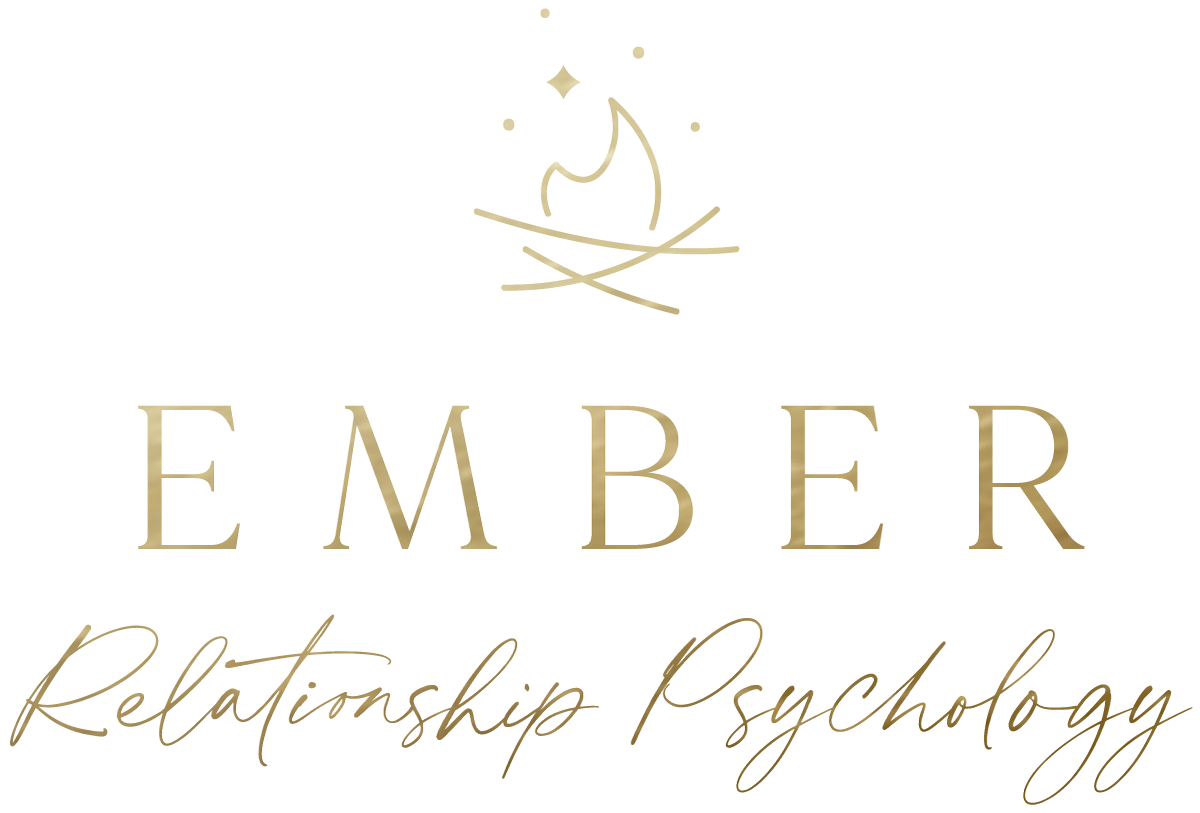3 Tips for Peaceful Conversations
by Amber Dalsin, M.Sc., C.Psych.
No one wants to feel disconnected, misunderstood, or alone with the person they love most.
Have you and your partner ever had a blowout fight when all you wanted to do was share what was in your heart?
Do you find you can't stop interrupting each other because you have different opinions?
Are you afraid to share how you really feel in case it pushes your partner away or causes a fight?
If that sounds familiar, here are three tips for more peaceful conversations in your relationship:
1. Remembering why you got together in the first place
2. Being tolerant of different views
3. Making small repairs ASAP
My Experience
I remember early in my relationship, I loved my partner so much, but I worried that conflict made us incompatible. We had very different styles.
He preferred to not talk about issues, or keep it very, very calm.
I wanted to talk about things. I never minded yelling or criticizing, to get my point across, making it clear to my partner what he did wrong.
But it hurt our relationship; it hurt my partner. And in the end, it hurt the long-term possibility of us being together. Since what I wanted was to be together, I had to be willing to change so that I could have a more peaceful relationship overall.
We all go into relationships thinking that our way of doing things is right. I had to make some changes so that I could be a better partner. It was about making a small personal sacrifice so we could have a better relationship together.
Remembering Why You’re Together
Nobody starts dating hoping to break up.
Remember why you chose the person you’re with and keep that in mind even (especially) when you're upset. I know it's hard to do, but it's important to focus on the big picture when dealing with a bump in the road.
Think strategically: what are the things worth fighting through? What are the things you can let go?
Keep in mind the reason you're together so that when each battle comes up, you remember what you’re ultimately fighting for, so you both can be happy together in the long run.
Tolerance
Because you are different people, you will naturally have different views.
The second thing to consider if you want a more peaceful relationship is to tolerate your partner’s views.
This can be irritating; you and your partner will naturally see things differently. They came from a different family with different beliefs, values, expectations, childhood, learnings. This is normal.
Hopefully the partner you chose has similar views about the fundamental things so that you can get along most of the time. But there's going to be disagreements and you may have to learn to tolerate or accept their view.
The goal is to just be curious about their opinions, seek to listen and not judge. When we get judgmental, we want to dig in our heels, point out how they're wrong, maybe persuade them to see things differently. And it's going to cause a fight.
John Gottman’s research found that only 31% of relationship problems are solvable. That means the rest are perpetual problems, simply because we're different. Choosing a relationship is choosing the problems you have to tolerate.
It's hard to do.
To have peace, we have to work on tolerating the things we don't always love hearing from our partners.
Repairs
It’s ok to make mistakes now and then—if you repair them.
All couples are going to have missteps. Repairs help to minimize the impact of the misstep. As soon as they happen, we want to work to repair them.
For me, I had to work on yelling, because it was hurtful; it was eroding the peace and the happiness in my relationship. I had to work on talking more neutrally.
Now if I start a conversation with a raised voice, as soon as I catch it, I make a repair. I say to my partner, “I didn't mean to do that. Can I try that again?” And his job in the repair is to let me try again, which can also be hard to do.
But the benefits are amazing, because now we are happy, connected, and much more loving more of the time.
Maybe you caught yourself walking away from a conflict conversation. After a few minutes, you can go back to your partner and say, “Hey, I didn't mean to walk away, I'm ready now.”
It's about finding ways to repair our missteps as soon as they happen so we can still feel close and connected.
Peace of Mind
In order to share our thoughts and feelings with our partners and have them stay engaged and talk without conflict, it helps to use all three mindset tips. Firstly, remembering why you're in this in the first place, and being willing to focus on a shared goal. The second is to tolerate different views and agree to disagree. The third is to make repairs as soon as there's a misstep, so that it doesn't become a much bigger issue.
These can be hard to do, but in exchange for mindfulness, acceptance, and corrections, you can have a peaceful, loving, and long-lasting relationship.
This blog is not meant to be a substitute for couples therapy or relationship counselling. This should not be construed as specific advice. See a relationship therapist in your area to address your specific problems.


